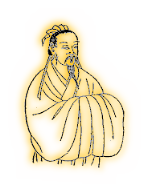
NUTRITION & CHRONIC DISEASES
Chronic diseases, such as wasting disease, the manifold morbility syndromes of the elderly, overweight, obesity, type II diabetes, menopause disorders, are characterized by, and often prevalently depend on, a functional deficiency of the internal organs.
The lost energy regulation, which leads to a lack of energy, seems to have an important role in the onset of the deficiency mentioned.
The functional deficiency of the internal organs is the foundation of the aetiopathogenetic conception of traditional medicine and particularly of traditional Chinese medicine, which attributes great significance to the functional ability of the human body and underlines that also advanced-stage degenerative diseases can be asymptomatic as far as the functional activity is flourishing. In the clinical practice, this functional deficiency can be recovered by a proper diet therapy, which represents the treatment option more similar to one basic element that keeps us alive: nutrition.
The recovery by means of a diet therapy relies upon the body functional resources, which are able to recover their own physiological activity when rehabilitated with specific food: ultimately, the nutritional approach is able to cure or palliate chronic symptoms by resorting to the vitality of the patient or, in other words, to the so called “vis medicatrix naturae”, term that generalizes a powerful intelligent integrated system of functions, apparatuses and structures of the human body.
Although with some limitations, in modern medicine we can find a number of evidences matching with the assumption that the functional deficiency of the internal organs plays a predominant role in the disease. To give an example, according to traditional Chinese medicine obesity is due to a deficient assimilation of “correct food”, which leads to retention of “metabolic wastes” that in turn gives origin to adipose tissues; well, the statement that a qualitative nutritional deficiency leads to obesity matches with data of modern medicine.
On the other hand, literature shows evidences of the efficacy of traditional Chinese dietetics.
A recent research shows the advantages of a Chinese traditional diet, i.e. reduced loss of lean body mass and better patient compliance, in the comparison between 1200-calorie diets; moreover, a collection of observational data and researches carried out at university level shows a positive trend of the results obtained with the Chinese traditional diet.
As a matter of fact, if we pay attention, a deficiency picture is somehow at the base of most chronic diseases: type II diabetes is due to insulin resistance, in other words a deficient sensitivity to insulin; essential hypertension is due to a deficient perfusion of tissues, e.g. renal and cerebral, which leads the human body to compensate by raising the blood pressure in order to assure a sufficient blood supply to vital organs; in depressive syndromes, deficiency is a shortage of mediators such as serotonine; in the elderly, a number of deficient conditions combine and determine manifold morbility syndromes; in some types of gastritis, an insufficiency of the intrinsic factor leads to a poor assimilation of vitamin B 12, which in turn determines a deficient synthesis of acetylcholine and noradrenaline with potential long-term negative effects on the autonomic nervous system functions.
In all these cases and many more, traditional Chinese dietetics can be a great support. In fact, a well selected and appropriated nutrition gains the value of a natural drug, and represents the most simple effective way to allow the vitality to obtain an often extraordinary recovery from disease.
On the other hand, an assumption of traditional Chinese medicine states that “food and drug share the same origin.

